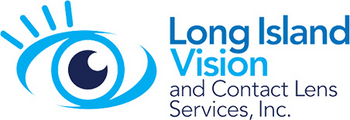Neuro-Optometric Rehabilitation
Vision is fundamentally a function of the brain. The way we process depth, direction, speed, and color contrast all comes down to how the brain interprets the information the eyes provide. Traumatic brain injury such as a concussion or stroke, or diseases such as MS, cerebral palsy, or chronic traumatic encephalopathy (CTE), can result in potentially devastating visual problems. There are also a number of inherited brain conditions which can similarly prevent the normal development of the visual system.
Is a Brain Injury or Concussion AffectingYour Vision?
The effect these have on the neuro-visual system won’t always be noticeable early on, as many health care providers and therapists lack the training and/or skills to recognize when neural-visual problems are affected by brain damage. Even when they are recognized, the treatment needs to be provided by a neuro-optometrist. An optometrist or vision therapist trained in neuro-optometric rehabilitation can effectively treat and rehabilitate the vision-related problems in those who have or are suffering from visual deficits and dysfunction resulting from brain injury or disease.
The Vision Therapy Center At Long Island Vision Care provides advanced neuro-optometric rehabilitation from our clinic in Huntington, Long Island. We work with patients to help them improve visual function, alleviate symptoms, and regain their quality of life. We provide neuro-optometric rehabilitation to patients from Huntington, Lake Grove , Hicksville, and Brentwood.
What is Neuro-Optometric Rehabilitation?
The brain is surprisingly elastic, meaning it can rewire and retrain itself after injury. Neuro-optometry—often lumped in with vision therapy—is a specialized field of optometry which works to actively retrain and reprogram the visual processing we rely on to properly interact and interpret the world around us. Neuro-optometric rehabilitation uses a highly-customized combination of visual exercises, specialized lenses, and targeted visual stimuli—often including of digital aids—to retrain the patient’s brain to process visual input properly.
We will create a treatment plan based on the individual’s vision conditions and medical background. Neuro-optometric rehabilitation is an important component of the rehabilitative process and is essential to reclaiming full day-to-day vision functionality.
General Symptoms of Vision Conditions Treated byNeuro-Optometric Rehabilitation
- Spatial disorientation
- Focusing problems
- Double-vision (diplopia)
- Blurred vision (asthenopia)
- Headaches
- Nausea and dizziness (vertigo)
- Eye strain
- Fatigue
- Problems accurately gauging movement, direction, and speed
- Trouble differentiating colors
- Hand-eye coordination and motor problems
Frequently Asked Questions About Neuro-Optometric Rehabilitation
Who is a Good Candidate for Neuro-Optometric Rehabilitation? How Do I Get Started?
Anyone with the above symptoms or conditions should undergo a neuro-visual or vision therapy assessment.
People with motor, perceptual, or visual problems resulting from brain injury or disease can benefit from neuro-optical rehabilitation. It begins with a general eye exam to ascertain the overall health of your eyes. After reviewing any relevant medical documentation from your neurologist, occupational therapist, physiotherapist, etc, we will then perform a Neuro-Visual Assessment to pinpoint the exact visual conditions(s) present. The Vision Therapy Center At Long Island Vision Care will then craft a personalized treatment plan for your recovery.
How Long Does it Take for Neuro-Optometric Rehabilitation to Work?
This depends on the severity of the condition or problem. You should experience improvements fairly quickly. Don’t expect a complete turn-around overnight, however. It’s a gradual process— it takes time to retrain the brain and eyes to function in unison in the way that they should, particularly if the cause of the vision problem was severe. The full amount of time required depends on multiple factors, including the cause, the individual patient, and compliance with the regimen.
How Much Does Neuro-Optometry or Vision Therapy Cost? Is it Covered by Insurance?
Neuro-optometry or vision therapy is not covered by vision plans. Occasionally, part of the treatment can be covered by certain medical insurance plans, but not all. The full cost will depend on the length of the treatment.
More Information on Neuro-Optometric Rehabilitation
References:
